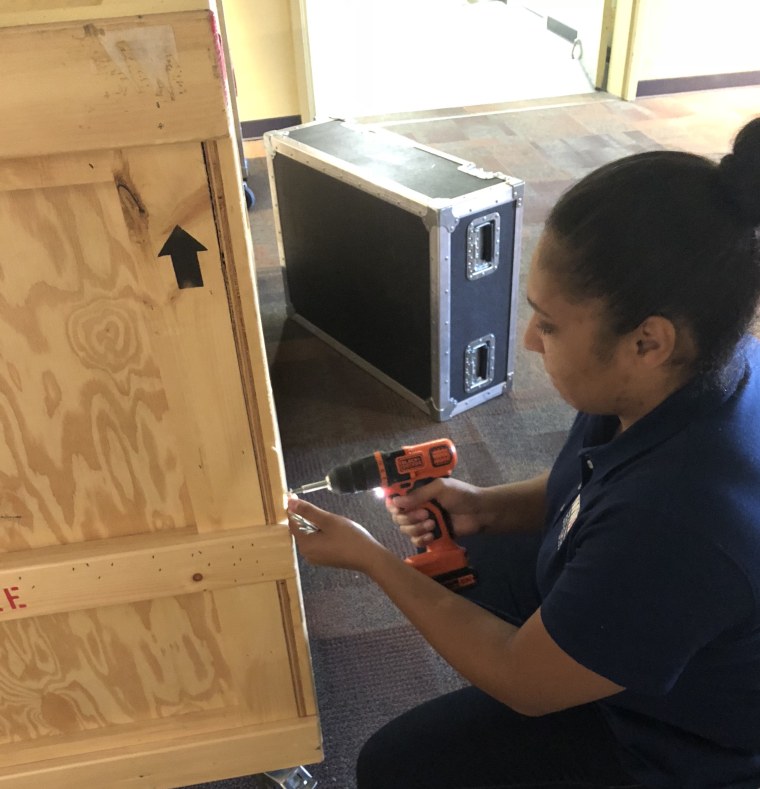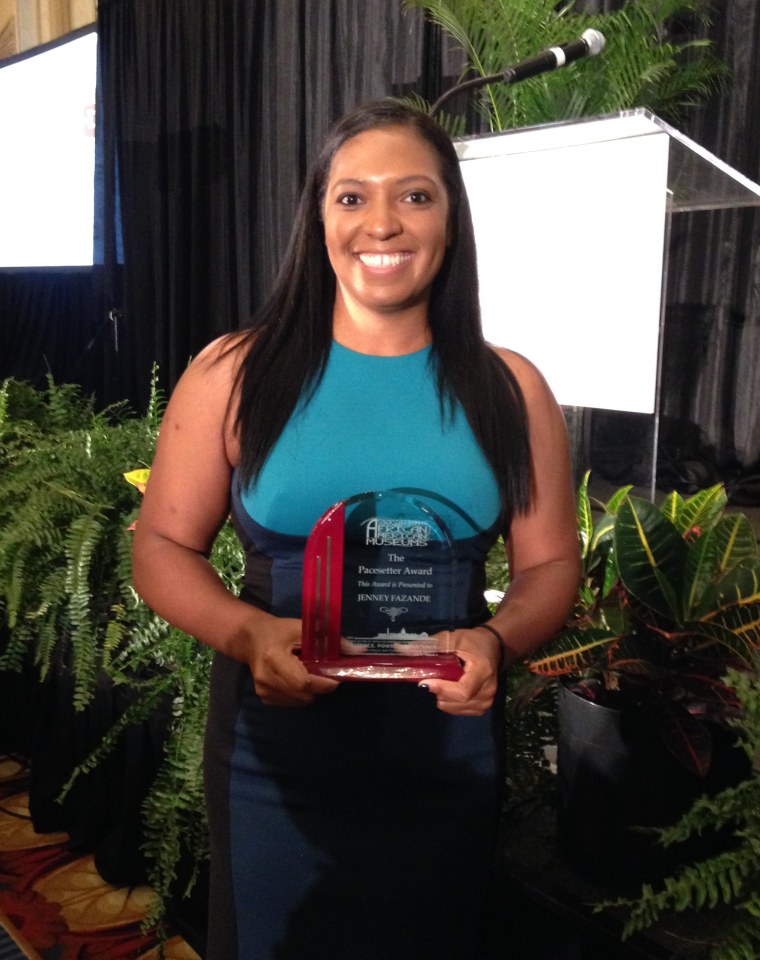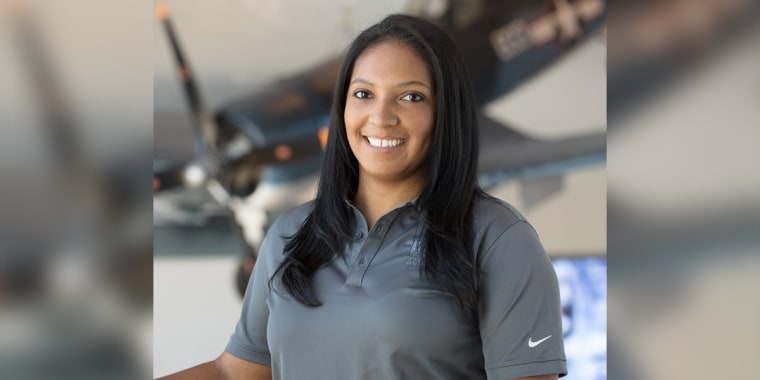At 35 years old, Jenney Fazande has accomplished a lot of firsts. She’s the first woman, as well as the first African American, to hold the director of exhibits position at The National World War II Museum in New Orleans, Louisiana. Not only is this museum huge in a physical sense (it occupies five full city blocks) it’s the largest museum dedicated to WWII in the entire country.
Fazande holds a master’s degree from the Corcoran School of Art and Design at George Washington University, and she’s produced works at 12 museums — including the Smithsonian American Art Museum, Newseum and the National Geographic Society. Since starting in 2015 at the World War II Museum, she’s helped produce six traveling exhibits and eight special exhibits. And when it comes to her career in design, she’s just getting started.
“I’ve had to knock on a lot of doors to get the titles and roles that I’ve wanted,” said Fazande. “Women just haven’t played a big role in exhibition design in the past — so no matter the museum, hiring a woman feels new and risky even if that’s ridiculous.”
Fazande suspects that a big part of the reason museums are skeptical about hiring women is the manual labor component. In addition to creating the layouts of the exhibitions, Fazande meticulously plans out how the exhibit pieces will be shipped — from the sizes of the crates to the exact spots where the displays will go in museums once they arrive. When you add in the pressure of breaking down gender barriers, it’s a lot to consider, but Fazande has learned how to move forward in her career even when it’s hard.

“I once worked at a museum where they didn’t allow me to advance in my career in regard to promotions,” said Fazande. “At that point I knew I had to leave and step out on faith to achieve what I wanted.”
Fazande credited her ability to make these tough decisions to her support system and her parents. “I’ve had to navigate this field largely on my own, and surrounding myself with strong female friends has given me the confidence to trust my gut on big decisions,” said Fazande. That said, she still has some advice that, if given the opportunity, she’d share with her younger self.
“I’d tell myself that your parents are always right — listen to them,” said Fazande. “My parents always made it clear that, as a black woman, a lot of the time I will have to be twice as good as everyone else to get half as much. But I’d like to think that the accomplishments feel twice as good.”

One of her proudest accomplishments came in 2017 when Fazande received the Pace Setter Award from the Association of African American Museums. The award recognizes museum professionals who are especially innovative and dedicated to sustaining African and African-American culture in museums. “It was nice to be recognized for what I’ve accomplished, but it was also a reminder to keep pushing,” said Fazande.
Fazande works hard to keep a clear head and to stay focused on her health and friends. “The best career advice I’ve received has been from my friends — and it’s advice that doesn’t even directly correlate with my career,” noted Fazande. “They’ve taught me that inner strength is what’s important, and to always keep pushing toward my goals.”
